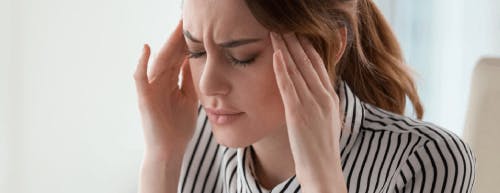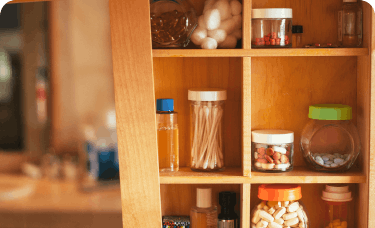Find out how caffeine can help treat your headaches.
If you suffer from frequent headaches, then you understand how important it is to get quick relief. What you may not know is that some medications contain a surprising ingredient that helps alleviate headache pain. The ingredient for managing headaches that makes a big difference: caffeine.1
Where does Caffeine Come From?
Caffeine is found naturally in the fruit, beans and beans of the coffee plant, tea leaves, cacao plants and guarana plants, in different amounts:1
- Cup of black coffee: 95mg
- Shot of espresso: 65mg
- Cup of black tea: 47mg
- Cup of green tea: 28mg
- Ounce of dark chocolate (cacao): 24mg
- Guarana seeds: about four times the amount found in coffee beans
- Excedrin Extra Strength: 65mg
In the United States, adults consume about 135-200mg of caffeine on average each day, which works out to about a cup and a half of coffee.1,2 Studies suggest that up to 90% of Americans consume at least some caffeine on a daily basis, making this widely available stimulant the world’s most popular drug.2
How Does Caffeine Help Migraines?
The human body creates a substance called adenosine, which is responsible for deep sleep, temporary widening of blood vessels, control of some movement, brain electrical activity, collagen production, and is present in large amounts during a migraine attack.1,2
During a migraine, adenosine sticks to specific receptor molecules on brain cells.2 Caffeine helps migraines by blocking these receptors, which means the adenosine doesn’t have a place to land and cannot exacerbate a headache.2 Another way that caffeine can help during a migraine attack is by reducing inflammation and narrowing blood vessels which may relieve pain.1
Additionally, caffeine can make analgesics work more efficiently, and increase your body’s absorption of pain-relieving medications like Excedrin.3 It functions as an adjuvant, which is a substance that enhances the body’s response to a medication and studies have shown that combining caffeine with other pain medications improves their overall efficacy.3
Simply put, caffeine can help with migraines and headaches by narrowing blood vessels, inhibiting chemicals that can cause migraines. While it’s useful on its own, caffeine is best at helping migraines and headaches by making analgesics like the active ingredients in some Excedrin products more efficient and effective.









